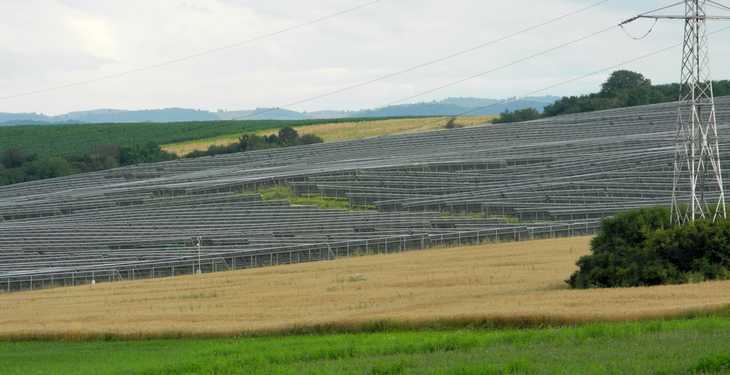The investors Federation PATRES, which represents many small companies with Romanian capital, claims that the new ordinance amending the Law 220/2008 of renewables “sacrifices the small and medium investors and especially the domestic capital invested in renewables,” it is shown in a release.
PATRES calls for fair solutions for all the producers in the renewables sector.
“The Employers Organization of the Energy Producers from Renewable Sources in Romania – PATRES noted the changes made by the Ministry of Energy to the Law 220 and apreciates that within the final form of the Emergency Government Ordinance a part of the proposals submitted during the public consultation period have been taken into consideration. Unfortunately, the solutions to avoid the bankruptcy of the small producers of energy from renewables, mostly investors with domestic capital are missing,” reads the press release of the association.
PATRES admits that there are some indisputable improvements of the original form of the project, such as: setting a fixed number of green certificates acquired in 2017, not implementing a minimum price of 25 euro for green certificates, as well as keeping the possibility of carrying out bilateral contracts negotiated directly by the producers with power capacities under 1 MW.
“At the same time, we wish to express our concern and displeasure about the negative aspects introduced by this project, which radically affect activity of small and medium producers of E-SRE, most of them investors with Romanian capital.”
“The final version of the GEO, after the public consultation, is actually a set of measures in favor of the large international companies in the wind sector and, on the other hand, a guaranteed bankruptcy for small and medium enterprises, especially of those in the photovoltaic sector.”
By keeping in place the existing bilateral agreements, the market distortions do not disappear, and for the small and medium producers there will be no increase of liquidity, at least for 2017.
“Thus we ask ourselves, with the utmost concern, why there has been decided to support the large international companies at the expense of those with domestic capital or foreign SMEs? Especially since the integrated producers manage to sell all the green certificates at this moment. We support our statements by showing in the following, the aspects of the GEO that we consider critical for the small and medium enterprises”, also states the press release.
Thus, in the normative act that amends the Law 220, it is provided the continuing of the measure to postpone the two green certificates in solar technology by the end of 2024, taking into account that the wind technology remains under postponement according to GEO57 / 2013 (until 31.03.2017). This measure represents an unacceptable discrimination of the solar technology, which in fact is being stripped by the two green certificates.
By keeping the minimum price at the current level of 29.4 euros, compared to 25 euros – the initial proposal of the Ministry of Energy, the number of green certificates acquired in 2017 it is reduced from a level of 17 million (in the first form of the GEO) to 14.9 million (revised form of the GEO after the public consultation). Following the abolition of the provision which continues the deferment period for the green certificates for wind and small hydropower plants by the end of 2017, over the next year will be further issued – compared to 2016 – an additional 4 million green certificates for wind power. The difference in absorption of the certificates in 2016 versus 2017, as proposed by the GEO, is approximately 2.8 million green certificates. Given the fact that within the wind technology much of capabilities are represented by the integrated producers (manufacturers and suppliers, in some cases, also distributors of energy) – which were successful and will continue to be successful under the existing bilateral agreements in selling all the green certificates issued to them – it is very clear that the increased uptake of the green certificates in 2017 will be made mostly from this technology, in favor of the integrated producers at the expense of small and medium producers –PATRES also states.
The Association believes that the current situation – in which some sell green certificates while others do not – is an unacceptable situation, given that it is a discretionary and unfair distribution of the state aid.
PATRES welcomes the proposal of introducing an anonymus trading platform, in the form of combined energy products plus green certificates, but expressed doubts upon its effectiveness in the coming years, given that – actually – the absorption of green certificates in the market does not rise for all the manufacturers and, especially, given that the existing bilateral agreements remain in force.
“Basically, some manufacturers (especially those that are integrated) will continue to sell all the green certificates, while others will not sell anything. Also, such a market cannot function if the mandatory sale of electricity in band – impossible for the producers from renewable sources – is not eliminated, a change that is not foreseen in the draft of the GEO. ”
Association also addressed to the Prime Minister Dacian Ciolos, requesting expressly his attention and support for finding equitable solutions for all the E-SRE producers, including the small investors, so that the new law to be really dedicated to the renewable sector.
“PATRES, as the representative of the domestic capital invested in the renewables sector and as the representative of small and medium (non-integrated) investors, considers the proposal of the GEO in its current form ass unacceptable, for it is dedicated to the integrated companies that will be able to sell even more green certificates, while the small and medium producers are executed without appeal”, say the Association officials.
